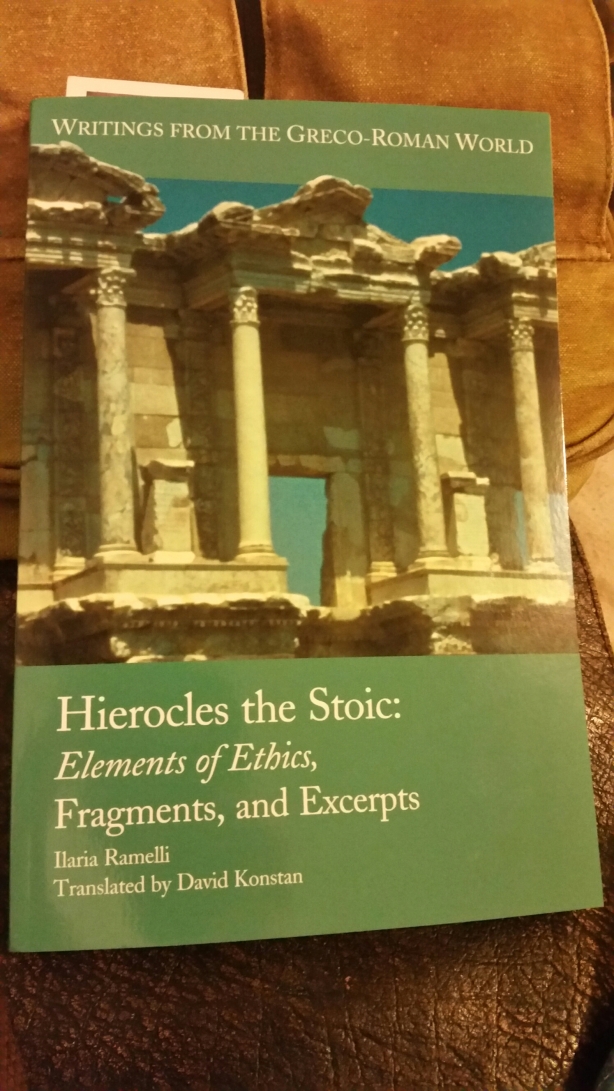Seneca,
“He who has learned to die has unlearned slavery; he is above any external power, or, at any rate, he is beyond it. What terrors have prisons and bonds and bars for him? His way out is clear. There is only one chain which binds us to life, and that is the love of life. The chain may not be cast off, but it may be rubbed away…”
It just so happens that I’ve been lately thinking of death and freedom. Of Epictetus, and his chained leg. I was thinking on the death of Cato, and of your own, incidentally. So you letter comes at a fortuitous time.
I find myself in a good bit of pain the last couple of days, and today it is particularly sharp. Unlike the previous days, it is near constant, and my leg can barely carry my body’s weight from the strength of it.
So I’m also thinking about indifferents, dispreferred or otherwise.
I was thinking of the Stoic sage, in purely hypothetical context I assure you, and his ‘rational exit’ from the world. How one might, at some time, determine that to meet nature halfway is an appropriate thing to do.
The Stoics really do seem to stand out on this issue. Today, in my country, such talk is a bit taboo. My country has been at war for the better part of two decades now, and we’ve lost more warriors to suicide than we have to combat. More even than in the attack which pulled us into the conflict in 2001.
Maybe it’s not fair to call the one combat, but not the other. Maybe they’re just combats of a different stripe.
Philosophy as training for death is a concept which is often shocking to the sensibilities; however I think I’m coming to understand this point differently than I had before.
It sounds grandiose, bold, courageous, and maybe even foolhardy to levy such charges. But really, it’s a facing down of a primeval fear. It looks square in the face what most would not even glance at, could they avoid it.
It may even be a pious or holy thing.
Stoicism has challenged by conception of freedom in the past three years. I’m well steeped in Lockean negative liberties, the fruits of the enlightenment, and the particular brand and stamp of the American conception of natural rights. This includes, of course, the proper roles of individual, community, society, and government.
Freedom from this perspective is the right to be let alone. To incur no assault, coercion, or force; as you then do the same to others. Your rights are inscribed in an indelible circle, extending to such extent only that they are touchig the same circles of your fellow citizens.
It’s a freedom of body, and of mind. One of lifestyle, and lifeways.
But the freedom of the philosopher is a different sort. It’s the freedom of the faculty of choice and assent, it’s even more untouchable than that of the classically liberal citizen.
The citizen’s freedom is challenged by foes, criminals, governments, wars, debt, and every other manner of misfortune. It’s such a tenuous and delicate thing.
The philosopher, rather, is subject to none of these. No prison, no chain, no illness, no war, no devastation, not even death itself can impress upon him should he choose otherwise.
Your letter has provided more food for thought for my ruminations.
Farewell.
Part of Michel Daw’s Reading Plan of Seneca’s Letters.

You must be logged in to post a comment.